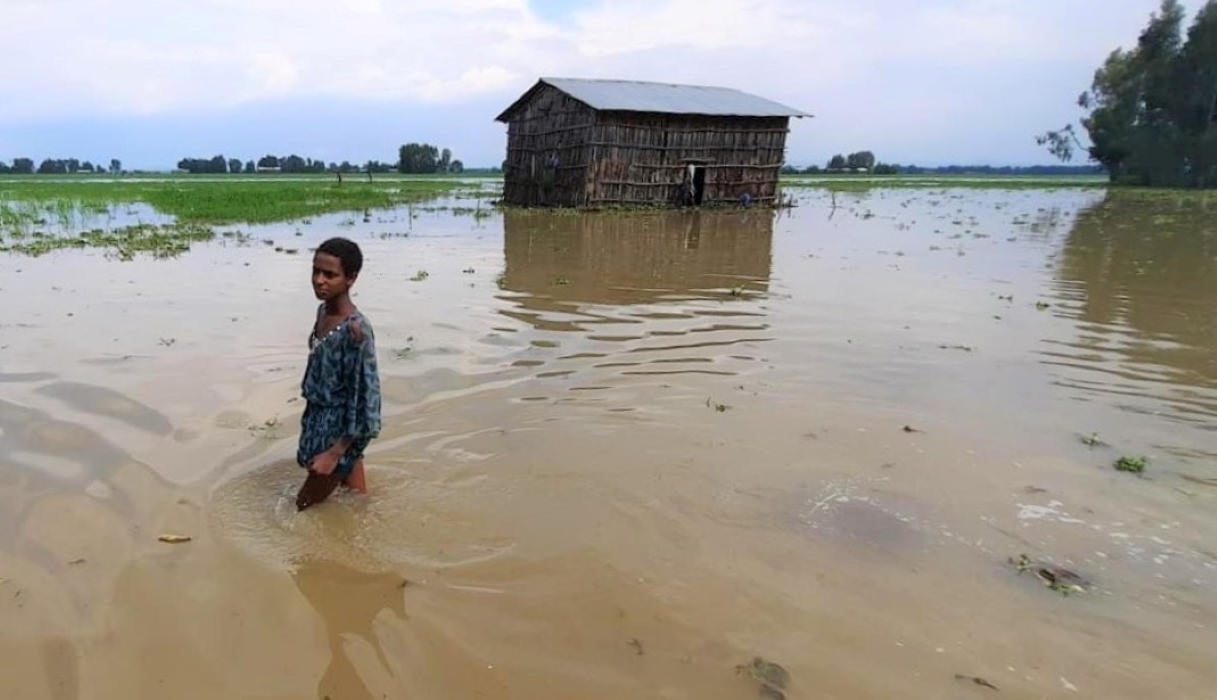Rice farmers across Niger State have expressed concerns over the perennial flooding that washes away large hectares of farmlands amidst rising cost of food.
Despite proactive steps taken, which include early planting and change of rice seedlings, farmers said the flood that have occurred in recent weeks have submerged some of their rice farms.
Daily Trust gathered that some of farms affected were due for harvesting, with owners hoping to celebrate a bumper harvest to offset some of the loans they took in 2022.
Some farmers who are still in court over loan facilities told Daily Trust on Sunday that their inability to pay back the loans was giving them sleepless night because of threats by the loan facilitators to jail them.
They said despite adopting early planting this year to avert a repeat of 2022 where large hectares of their rice farms worth millions of naira were submerged in flood, they did not completely escape a similar fate this year.
Despite these reported losses, farmers lamented that relief supports did not get to them.
The Overseeing Director General, Niger State Emergency Management Agency, Garba Salihu, recently told our correspondent that no fewer than 15 communities were sacked recently in Mokwa Local Government Area alone.
Similar incidents of flooding, where rice farms worth millions of naira were affected, have also been reported in some parts of Gbako and Lavun LGAs.
In Edozhigi, one of the major rice farming communities in Gbako LGA of Niger State, farmers said they started planting as early as April as a proactive measure to escape from the annual flood disaster that befell them last year but the recent flooding had washed their farms them away.
Some of them said they are now waiting for the dry season to begin irrigation farming with a view to recover from the rainy season losses.
One of the farmers, Tauheed Dwale, told Daily Trust on Sunday that despite changing the variety of seed from what they were using in the past to those that would mature in three months, flood still hit them earlier than it did in 2022.
“Flood has already washed away some of our rice farms. And just like last year, the rice farms that were washed away by flood recently were due for harvesting because we adopted early planting this year to escape the perennial flood disaster but we didn’t escape. Flood occurred earlier this year than last year,” he said.
He added that “because of the challenges we faced paying back the loans after flooding, especially those we took from RIFAN and microfinance banks, we didn’t take external loans this rainy season. Most of the loans we took this rainy season were internal, from our cooperatives and from individuals. We didn’t benefit anything from the loans RIFAN gave us last year because of the flood disaster and as I speak with you, some people are still in court because RIFAN took us to court. So, some people are still offsetting that loan in court up till now. Last we year, we lost our rice farms most of which were due for harvesting.”
He said some people were not able to plant early due to high cost of inputs and lack of money to buy inputs on time.
The Village Head of Edozhigi, Alhaji Usman Abubakar, however told Daily Trust that while flood has again washed away large hectares of rice farms worth millions of naira this rainy season, they were yet to receive the federal government’s relief materials, calling on federal and state governments as well as the National Emergency Management Agency (NEMA) to come to their aid.
He said they were yet to recover from the losses as a result of the 2022 flooding that washed away large hectares of their rice, sugarcane and maize farms when the disaster struck again recently.
“Only few people had harvested their rice before the recent flooding. Our rice farms were recently submerged,” he said.
Again, the rice farming communities affected in Mokwa LGA include Kusogi, Lwafu, Sunti, Kanji, Emigi, among others.
A farmer in Mokwa LGA, Abdullahi Isah, said the inputs they were usually given as loans by microfinance banks and other Non-governmental organizations usually come with high interest rate that they found difficult to pay.
According to Aliyu Mohammed, a farmer in Lavun LGA, “Recently, I lost two hectares of my rice farm to flood. In fact, the rice was due for harvesting.”
He said they were yet to get relief materials from the Federal Government through NEMA, saying that “We didn’t see anything from NEMA. We don’t know the farmers they gave ours. We saw reports that they distributed relief materials to victims of 2022 flooding. But, we didn’t see anything.”
The farmers lamented that they were excluded in the distribution of federal government Relief materials for the 2022 flood victims.
When contacted, the State Coordinator of the National Emergency Management Agency in Niger State, Hajiya Zainab Saidu, said the distribution had not been concluded.
One of the major challenges to rice farmers this year aside the flooding was rising cost of farm inputs, especially agro allied chemicals and fertilizers, which they said affected them tremendously.

 Join Daily Trust WhatsApp Community For Quick Access To News and Happenings Around You.
Join Daily Trust WhatsApp Community For Quick Access To News and Happenings Around You.

